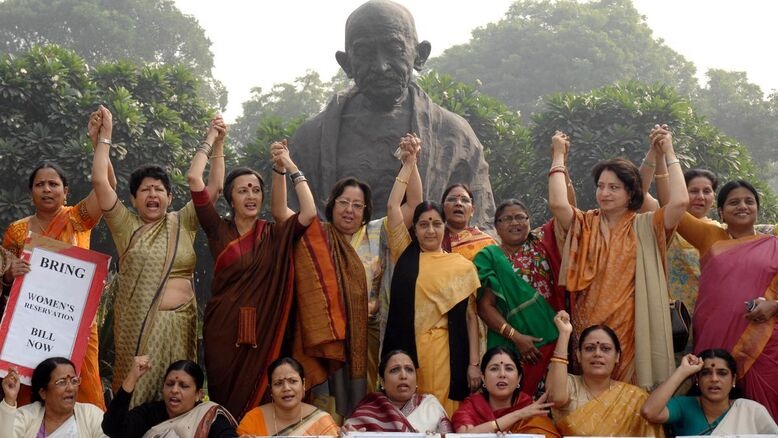The Modi government is planning to roll out reservation for seats for women as part of the delimitation exercise in the 2029 Lok Sabha elections. According to national media and official sources, the government is targeting implementation of the Nari Shakti Vandan Adhiniyam, which reserves one-third of seats for women in the Lok Sabha and state assemblies by the next elections.
For the same, the census has been announced and other steps will also follow. The women’s reservation bill is linked to the delimitation process, and the government is aiming to roll it out in the next elections, according to national media sources. This will mean that 33% of the seats in the Lok Sabha and assemblies will be reserved for female candidates.
According to the Constitution’s 128th Amendment Bill, 2023, Nari Shakti Vandan Adhiniyam was passed in September 2023. The data collected from the first census conducted after the enactment of this Act will become the basis for the delimitation exercise undertaken for the next Lok Sabha elections. Earlier this month, the government also announced the process of data collection for the census along with caste enumeration. This census will begin next year and will offer a snapshot of the country’s population as on March 1, 2027.
Delimitation Exercise
For female reservation to actually turn into reality in the next Lok Sabha election, the delimitation needs to be completed by the Election Commission of India well in time to conduct the 2029 polls on its basis. The new delimitation of constituencies based on the census data will be available faster than the previous time with the advancement of technology. A significant delimitation involves the process of readjusting the seats of the Lok Sabha as well as the state assemblies and redrawing their territorial boundaries.
There have been concerns among Southern states regarding the delimitation changing the proportion of seats allocated to various Dravidian states in the Lok Sabha. Southern states fear that the constitutional principle of one person, one vote, one value will lead to a jump in seats for the Northern states, where populations have grown briskly since 1971, in comparison to the Southern states where the population growth rate has slowed down in the same period.
However, senior ministers involved say that the concerns expressed by the Southern states will be addressed and no room for complaint will be left. This year in February, the Union Home Minister Amit Shah said that the Southern states would not lose even a single seat on a pro rata basis. However, A. Raja of DMK asked whether pro rata meant population-based or based on the present number of constituencies.
Under Article 81(2)(a) of the Constitution, “there shall be allotted to each state a number of seats in the House of the People in such a manner that the ratio between that number and the population of the state is, so far as practicable, the same for all states.” However, this rule has only one exception—with states whose populations do not exceed 6 million.


